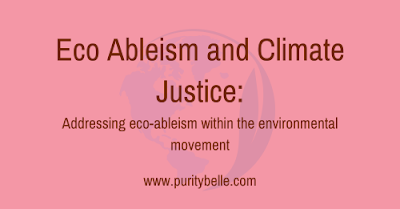Getting an Autism Diagnosis as an Adult
So this is not news to a lot of people as I had been slowly telling friends that I was pursuing an autism diagnosis and last week it was officially confirmed for me that I am, in fact, autistic. I went to The Adult Autism Practice and the cost was approximately €850. The process itself consisted of 3 sessions with a psychologist and the first two felt quite conversational but were actually very tiring as we were looking at a whole range of issues, like sensory problems, repetitive movements (also known as stims, which are a way of self-regulation for autistic people) and social situations. The third session was a recap of all the information I had given and an explanation of how it aligns to the DSM which is the diagnostic manual used to diagnose autism. At the end of the third session, the pyschologist confirmed that I am in fact autistic. I honestly can't describe how it felt hearing that news. I burst into tears and it took a few minutes to compose myself. I genuinely was not expected for it to be so emotional and the pyschologist was absolutely lovely and congratulated me. As part of the process with the Autism Practice, a support session is offered post-diagnosis. I've booked mine and chose to work with someone who I think might be able to help me with learning to unmask.
 |
| Image from Astral Design Boutique on Etsy |
Masking is the main reason why many girls and women go undiagnosed - we develop the skills to negotiate around situations that are often quite painful for us. It isn't like pretending or shifting slightly to blend in - it's more like a learned artifice that is a safety tool because often the way we feel most comfortable isn't acceptable to other people within our social structures. For example my natural communication style is to be very direct and unadorned and I have genuinely never understood all the 'fluff' and flattery that has to be attached to conversations so much of the time. So I have learnt by imitation and spent years (not necessarily consciously) studying how people spoke and interacted in social situations and then imitated accordingly. So, externally, I might appear to be very comfortable and saying the right things but inwardly I'm very uncomfortable and that tends to get worse the longer the social situation is. It can literally be exhausting - imagine for example going to a job interview where you have to 'present' yourself as the perfect candidate for the job. Anyone who has ever done an interview would probably agree that they can be tiring because you are concentrating such a lot of effort into making the right impression. So just think how it might feel if that interview went on for days, weeks, months! That is what it can be like for me.
@clionakelliher Finally at the age of 53, I got my autism diagnosis! #autism #autisticadult #latediagnosedautistic ♬ Paper Birds (3 min) - Jordan Halpern Schwartz





Well done Cliona, and thanks for sharing this. Well done on receiving your diagnosis and I hope all works out well.
You have written a number of very interesting articles.
This is an informative and educational contribution. You are a fantastic embassador and champion for so many causes; the environment, social inclusion, social reforms, Sustainable development goals etc.
You provide unique insights into how institutions condition and categories people. Also the impacts which this has on people to conform and how it is contrary to a number of primary areas of policy, Not least in relation to mental well being, recognising diversity, inclusion, equality etc.
Keep up the great work and continued success with all of your advocacy work.
Oh thank you Donal! I really appreciate such a nice message coming from a fellow advocate, and knowing how much passion and energy you put into working for people whose needs are often ignored, it means a lot. Onwards and upwards! We'll make the world a better place and having allies of like mind is a crucial support because it's so easy to get burnt out and disheartened but working together makes such a difference.